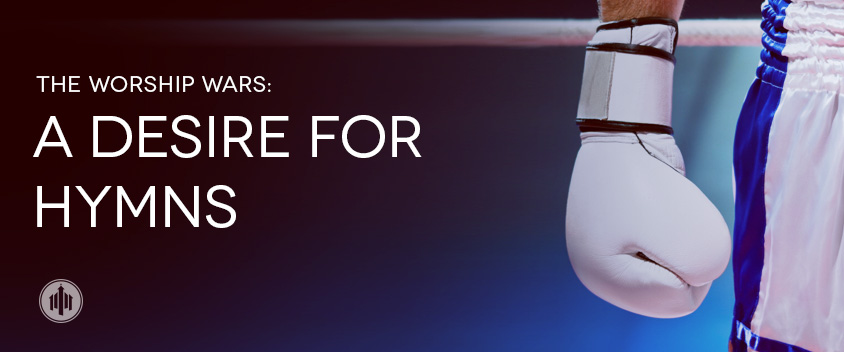
A greater understanding of this post can be had if you read this first.
Believing the majority of the readers here to be aligned more with the Post-modern characterization, we’ll start with a post that strikes at worship from the Modern perspective and how to communicate with him about worship.
The tension that exists in most of our worship services across the United States belies a greater conflict that has to be called out. Modern and Post-modern both play key roles in the resolution of this tension. Communication, though, is the great equalizer for the conflict. And it is a conflict.
We have to know where Modern begins his worship journey. Modern approaches a worship experience from a much different place than Post-modern. For Modern, to sing “The Old Rugged Cross” is to elicit memories of the day he met Jesus. The song is tied to that event. Seeing the words “I heard an old old story” is to revive the legacy of a parent or grandparent who is now receiving their full reward in Heaven. The faith that Modern carries every day is tied to events in his life, which, I might add is an extremely biblical concept. (<- the Old Testament, all throughout). It is that the saving events or manifestations of God acting in life that tie Modern to worship. And there is nothing wrong with any of that.
When our worship services just suddenly cease to contain hymns (read: references to “my” life event), Modern can get cranky, REALLY cranky. Through unspoken communication, Modern hears something, he turns off, he shuts down. He hears “you’re life doesn’t matter.” We can get into all kinds of discussions points here, but when it gets whittled down, that statement is at the heart of all kinds of the nasty things happening within the church today. The “Worship Wars” wouldn’t be wars at all if we knew how to have this conversation early on.
So, how do we have a conversation with Modern, especially if we come from a Post-modern mindset? How do we help him worship in a land that feels foreign?
The first thing, to me, is obvious. Modern must know that his life events do actually matter to the church. The absence of hymns, or songs that point to his “Ebenezers” (standing stones – look it up: 1 Samuel 7), is not meant to be an indictment on his life. In no way is the person responsible for the worship experience intentionally trying to alienate him, or those like-minded to him, from worship. Post-modern will not see the absence of hymns as a personal attack, in many cases Modern will.
This is all; of course, assuming that we are speaking of a period of time, say months of worship services without hymns, instead of just a one weekend window. And this rings most true if, one, the leadership of the church is not unified in direction of worship style for their particular context. Two, if it is a sudden and abrupt change within the worship service. For Modern and Post-modern to co-exist communication of vision for the Worship service and ministry is vital.
Being a Post-modern minded worship leader in a Modern context can be exhausting. It is often the case of both Modern and Post-modern attempting to communicate the same point, but arriving to said point in completely opposing fashions. It is true that the “point” is where the emphasis should reside in worship, Jesus’ atoning sacrifice. But often we, as humans, get hung up on the journey to the point, the “how we get there,” if you will. Sometimes, the form overrules the function, and it should not be the case.
This week we took a deeper look at Modern’s viewpoint on worship. The “takeaway” being that if we know where Modern begins in his worship, we know how to help complete his journey to the throne. Next week, we will look at Post-modern in the same vein of thinking.




[…] Take Matt Howard’s story of “Modern” and “Post-modern”: […]